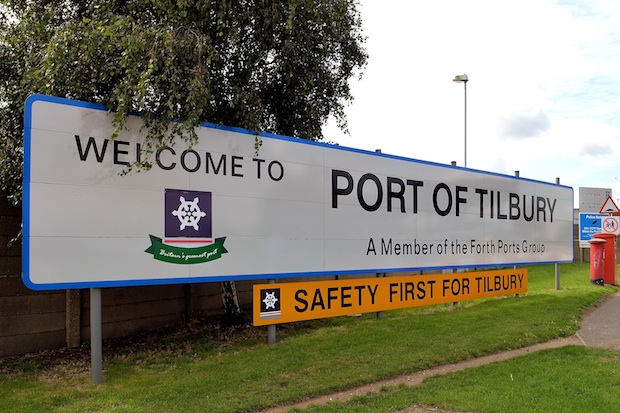How seriously should we take modern slavery? To some, the very phrase sounds hysterical: slave markets are seen as something belonging to 18th century Jamaica (or present-day Mosul) but not modern Britain. It’s true that slavery has mutated, but it’s very much still with us – which is why, at 6.30am on Saturday, screaming and banging could be heard from a cargo container offloaded from a P&O boat in Tilbury Docks in Essex. It was found to contain 35 Afghan Sikhs, including 13 children. One adult died from dehydration.
The facts of this case are still being established, but it fits a grim pattern. They likely fled Afghanistan seeking religious freedom: Sikhs are subject to hideous discrimination there, in spite of the warm noises made in Kabul. Could they have come to Britain and been granted refugee status, under the 1951 Convention?
Unlikely – there a staggering 2.6 million Afghan refugees who are not exactly flooding back to a newly stabilised country. Last year, Britain granted refugees status to just 172 Afghans and threw out 594 supplicants. By comparison, we let in about 1,200 immigrants a day. As I wrote in my Daily Telegraph column last week, Britain is disgracefully squeamish about offering asylum to religious refugees, even those fleeing persecution that can be traced back to a British invasion.
Perhaps the Afghans paid for this journey up front, hoping for a new life in Britain. More likely they had agreed to pay for their journey by doing some work for a gangmaster when they arrived. If so may well have found, as so many others have, that the repayment never ends and that their have entered indentured slavery. And they’d likely have appalled at the actual nature of their passage (the video, below, shows the moment they were released)
Last year, for example, police found a group of Lithuanian men who had agreed to pay £350 for passage to Britain and the prospect of employment: they would repay the sum through their earnings. On arrival, they found themselves shuttled from farm to farm at all hours of the day and night, controlled by gang-masters and unable to escape. And this is from an EU member state.
Ten years ago, 23 Chinese cockle pickers were found dead in Morcambe Bay, working for a gangmaster. These are the people we seldom hear about until they die. Even if they go to the police, they run the risk of being arrested themselves for being illegal immigrants. Britain don’t have the laws to handle Modern Slavery, and the police seldom know what they’re looking for. The laws are notoriously weak; successful prosecutions are very rare.
To her immense credit, Theresa May is midway through remedying this with the most robust anti-slavery legislation in the Western world. Her Modern Slavery Bill would give police the powers and guidance they need, but there’s something it lacks. When originally conceived, the Modern Slavery Bill had a requirement for large companies (with nine-figure sales) to make inquiries to ensure there were no slaves used in the supply chain. This lets companies know that turning a blind eye is not an option. This clause did not make it to Mrs May’s Bill, after objections from other government departments.
Frank Field writes in this week’s magazine that this is a great shame, and urges David Cameron to reconsider. Do read it.







Comments